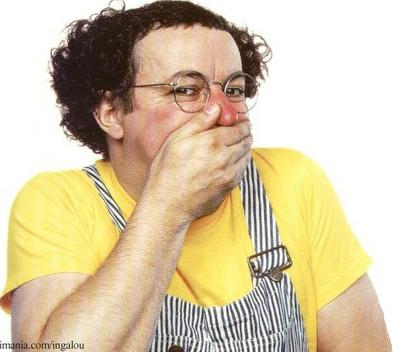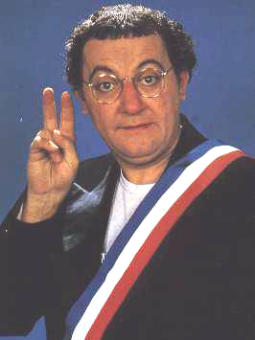 ‘It is not
really my fault if some people are hungry, but it would be my fault if nothing
changed,’ maintained Michel Colucci, better known as the French
comedian, Coluche.
‘It is not
really my fault if some people are hungry, but it would be my fault if nothing
changed,’ maintained Michel Colucci, better known as the French
comedian, Coluche.
So in 1985 he created the 'Restos du Coeur' charity to distribute hot meals and food packages to the needy and the homeless.
by Geraldine Royds
‘I have a little idea, a bit like this... If there are people who would be interested in sponsoring a free soup kitchen, we'd start first in Paris and then spread to France's big cities,’ he proposed. Funded mostly by small donations, ‘Restos du Coeur’ were able to distribute more than 8.5 million meals the first winter alone.
Coluche was one of the first artists to help the underprivileged. ‘I am not a Nouveau rich person, I am old poor,’ he said, using his fame to create a television fund- raising event and a yearly concert, Les Enfoirés, which encourages people to donate to the ‘Restos du Cœur’ and gives its’ concert and concert album profits to the charity.
After learning that surplus agricultural products cost more to store than to distribute for free to the poor; he pleaded for the Restos’ cause at the European parliament and in 1987 the surplus was finally opened to four organizations.
He also proposed a change in French Law that would allow the many small donors to benefit from the same tax breaks as big donors. The Loi Coluche (Coluche law) was passed in 1988.
 Coluche
was a controversial performer known for his political and especially
anti-racist activism. He liked to parody politicians and was famous for his
irreverent attitude towards the so-called ‘Establishment’. He ran for president
in 1981 but pulled out under political pressure and death threats after
polls showed that a significant part of the
electorate might vote for him.
Coluche
was a controversial performer known for his political and especially
anti-racist activism. He liked to parody politicians and was famous for his
irreverent attitude towards the so-called ‘Establishment’. He ran for president
in 1981 but pulled out under political pressure and death threats after
polls showed that a significant part of the
electorate might vote for him.
In 1986, Coluche died, at the age of 41, when his motorcycle crashed into a truck but his humour and his generosity survive. Today, his charity is supported by more than 40,000 volunteers in three countries and ‘Restos du Coeur’ delivers more than 67 million meals a year.
READ MORE or WATCH A VIDEO (in french)
